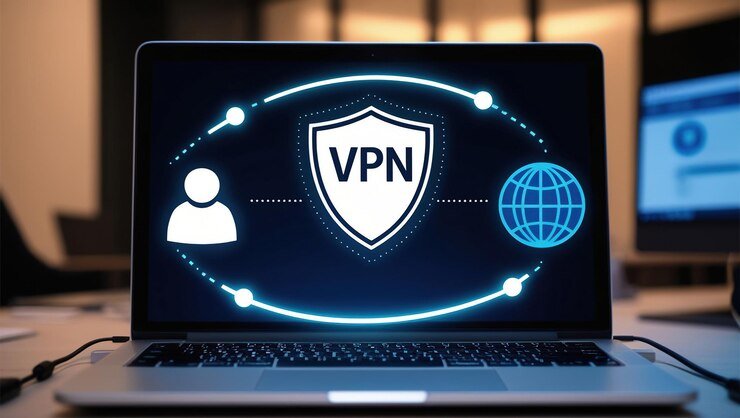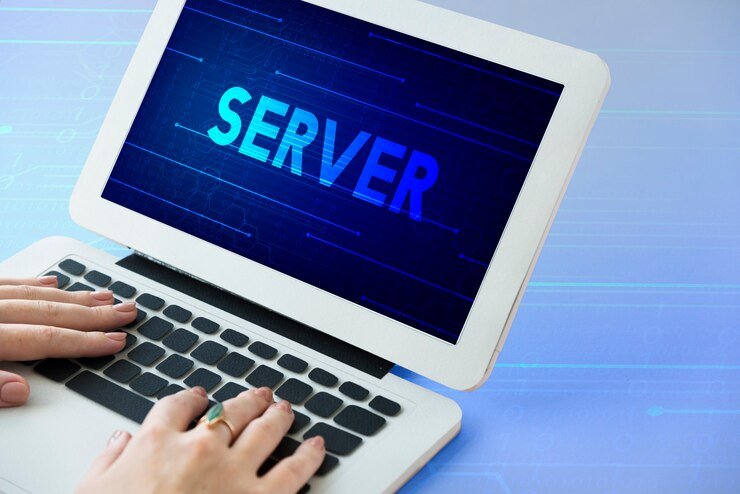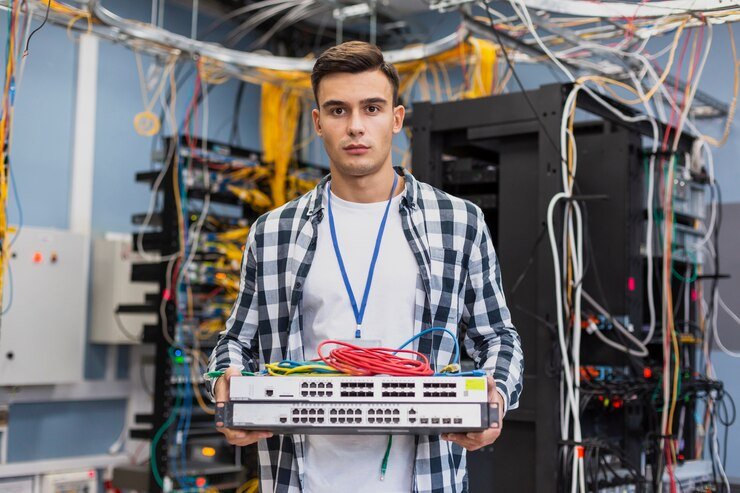
Introduction to VPNs and Why They Are Important
In today’s digital age, a Virtual Private Network (VPN) has become essential for many internet users. Whether you’re streaming your favorite show, browsing social media, or working remotely, using my VPN offers a layer of security and privacy that is hard to ignore. It shields your data from prying eyes and helps you access geo-restricted content with ease.
However, at times, you might experience sluggish speeds or connection drops while using my VPN. These performance hiccups can be frustrating and may leave you wondering if there’s more you could do to enhance your VPN experience. Luckily, there are various strategies available that can help optimize the functionality of your VPN service—ensuring fast connections without compromising security.
Let’s dive deeper into how to fine-tune my VPN for better performance so you can enjoy seamless browsing and streaming every time!
Factors That Affect VPN Performance
VPN performance can be influenced by several key factors. First, server distance plays a crucial role. The farther you are from the VPN server, the more latency you’ll experience.
Bandwidth is another critical element. If your chosen VPN service has limited bandwidth, it can slow down your connection speed significantly.
Encryption protocols also impact performance. Stronger encryption provides better security but may reduce speed. It’s essential to strike a balance based on your needs.
Network congestion cannot be overlooked either. High traffic times can cause slowdowns as multiple users share the same resources.
Your hardware matters too. Outdated routers or devices with insufficient processing power may hinder performance even if your VPN provider is top-notch.
Choosing the Right VPN for Your Needs
Selecting the right VPN is crucial for an optimal experience. Different users have different needs, so it’s important to consider what you value most.
If privacy tops your list, look for a service with robust encryption and a strict no-logs policy. This ensures your online activities remain confidential.
For streaming enthusiasts, check if the VPN can bypass geo-restrictions on platforms like Netflix or Hulu. Speed matters here; not all providers deliver seamless streaming experiences.
Gamers should prioritize low latency and high-speed connections. A VPN that offers specialized servers for gaming can enhance performance significantly.
Consider user-friendliness. An intuitive interface makes setup quick and easy, even for beginners. Read reviews to gauge reliability and customer support options before making your choice.
Tips for Optimizing Your VPN’s Performance
To make the most of your VPN, start by selecting a server that is geographically closer to you. This can significantly reduce latency and improve connection speed.
Next, consider switching between different protocols. Many VPNs offer options like OpenVPN or IKEv2. Experimenting with these can help you find a balance between security and performance.
Clearing your browser’s cache and cookies regularly can also enhance your browsing experience while using a VPN. It helps eliminate any potential slowdowns caused by stored data.
If supported, try enabling split tunneling for applications that don’t require a secure connection. This allows you to optimize bandwidth usage effectively.
Ensure that your device has sufficient resources available by closing unnecessary applications running in the background. A cluttered system may hinder how well my VPNs performs during use.
Common Troubleshooting Issues and How to Fix Them
VPNs can sometimes be tricky. If you find that your connection drops frequently, it might be due to server overload or poor network conditions. Switching servers often resolves this issue quickly.
Another common problem is slow speeds. This can happen if you’re far from the VPN server or if there’s heavy internet traffic. Experimenting with different locations may help improve performance.
If your VPN won’t connect at all, check firewall settings on your device. Sometimes, security software mistakenly blocks VPN connections. Adjusting these settings could make a difference.
DNS leaks are also something to watch for; they can expose browsing data even when using a VPN. Testing for leaks and altering DNS settings in your app’s preferences will enhance privacy.
Remember that outdated software might cause connectivity issues too! Keeping your VPN application updated ensures access to the latest features and bug fixes.
Alternative Methods for Improving VPN Performance
When looking to enhance your VPN experience, consider alternative methods that can make a significant difference.
One effective approach is switching the VPN protocol. Different protocols offer varying levels of speed and security. Experimenting with options like OpenVPN or WireGuard may yield better results for your specific needs.
Another strategy involves using a wired connection instead of Wi-Fi. Ethernet connections tend to provide more stability and faster speeds, minimizing latency issues.
Additionally, consider enabling compression within your VPN settings. This reduces data size before transmission, potentially speeding up performance during high-traffic times.
If you’re accessing resources primarily from one region, try connecting through servers in that area first. Closer proximity often equates to improved speed and reliability when utilizing my VPN service effectively.
Choosing the Right Server Location
Choosing the right server location is crucial for optimizing your VPN. The closer you are to the server, the faster and more stable your connection will likely be.
Most VPN services offer a range of servers across different countries. If you’re looking to stream content or access region-specific websites, select a server that’s geographically aligned with those services.
However, don’t just go by distance alone. Consider what you’re trying to achieve with your VPN. For gaming, low latency is essential, so pick a nearby server optimized for speed.
If privacy is your priority, you might prefer servers in regions known for strong data protection laws. Always keep an eye on server load as well; less crowded servers can provide better speeds and reliability.
Experimenting with various locations can lead to surprising improvements in performance and accessibility.
Updating Your VPN Software
Keeping your VPN software updated is crucial for maintaining optimal performance. Developers frequently release updates to enhance features, fix bugs, and improve security protocols.
An outdated VPN can be slower and less secure. Cyber threats evolve constantly, making it necessary for VPN providers to adapt their technologies. Regular updates ensure you’re protected against the latest vulnerabilities.
Most VPN applications allow automatic updates. However, it’s still wise to check manually from time to time. This guarantees that you’re always running the newest version available.
Updating isn’t just about security; it often brings performance enhancements as well. You might notice faster connection speeds or more reliable server options after an update.
Take a moment each month to review your software settings. Ensuring everything is up-to-date not only boosts functionality but also contributes significantly to your overall online experience with my VPNs.
Using Split Tunneling
Split tunneling is a powerful feature that can enhance the performance of your VPN. It allows you to route some of your internet traffic through the VPN while letting other data pass directly through your regular internet connection.
This approach offers several advantages. For instance, it reduces bandwidth usage on your VPN, which can lead to faster speeds for tasks that don’t require encryption, like streaming or browsing non-sensitive sites.
Moreover, split tunneling provides flexibility. You can access local services without disconnecting from the VPN. This means no more toggling back and forth between connections for different activities.
Setting it up is usually straightforward within most modern VPN applications. Just look for the split tunneling option in settings and choose which apps or websites you want to include or exclude from the tunnel.
Using this strategy smartly enhances both security and efficiency during online tasks without compromising overall experience.
Clearing Cache and Cookies
Clearing cache and cookies can significantly enhance the performance of your VPN. Over time, these stored files accumulate, potentially leading to slower browsing speeds and connectivity issues.
When you use your browser with a VPN, it often saves data from websites you visit. This helps load pages faster but can also cause problems if that data becomes outdated or corrupted.
Regularly clearing this information ensures you’re accessing updated content without unnecessary delays. It’s a simple task that requires just a few clicks in your browser settings.
Remember to clear both cache and cookies for optimal results. This process frees up space and enhances security as well by removing old tracking data.
Make it a habit to perform this routine maintenance every so often to keep everything running smoothly while connected through my VPNs!
Importance of a Strong Internet Connection
A strong internet connection is crucial for optimal VPN performance. When you connect to a virtual private network, your data travels through an encrypted tunnel. If your base connection is weak, the benefits of using a VPN diminish.
High latency or low bandwidth can lead to buffering and slow speeds. This results in frustrating experiences when streaming content or downloading files.
Moreover, many features of a VPN rely on stable connections. Frequent drops can interrupt secure browsing sessions and compromise privacy.
Investing in a reliable internet service provider enhances your overall experience with your VPN. It supports seamless navigation without interruptions while maintaining security protocols effectively.
In essence, ensuring that you have sufficient speed will maximize the capabilities of my VPNs to protect data without sacrificing usability.
Troubleshooting Common VPN Issues
VPN issues can be frustrating, but many are easy to troubleshoot. If your VPN isn’t connecting, start by checking your internet connection. A weak or intermittent signal can prevent successful connections.
Next, ensure that your VPN credentials are correct. Sometimes a simple typo in your username or password is the culprit.
If you’re experiencing slow speeds, try switching servers. Server overload can significantly impact performance. Connecting to a less crowded server often improves speed and reliability.
Firewall settings may also interfere with VPN usage. Make sure your firewall or antivirus software isn’t blocking the VPN application.
Consider rebooting both your device and router. This step refreshes network connections and clears minor glitches that might disrupt service quality.
Conclusion
When it comes to optimizing your VPN, understanding its intricacies can greatly enhance your online experience. By taking the right steps and being mindful of factors that affect performance, you can significantly improve speed and reliability.
Choosing the right VPNs tailored to your needs is crucial. Not all services are created equal; some prioritize privacy while others focus on speed. Researching user reviews and testing different options will help you find a suitable match for your requirements.
Once you’ve selected a VPNs, simple optimization techniques like choosing the best server location or utilizing split tunneling can make a noticeable difference in performance. Keeping software up-to-date ensures you’re benefiting from the latest features and security patches as well.
Don’t overlook common issues related to cache and cookies or internet connectivity, both of which have significant impacts on how efficiently my VPNs operates. Regularly clearing these elements can help maintain optimal speeds.
By adopting these strategies, you’ll be better equipped to enjoy seamless browsing, streaming, or gaming experiences without unnecessary interruptions caused by lagging connections. Embracing an optimized approach will not only enhance performance but also maximize the benefits of using my VPNs for secure online activities.
RELATED POSTS
View all


